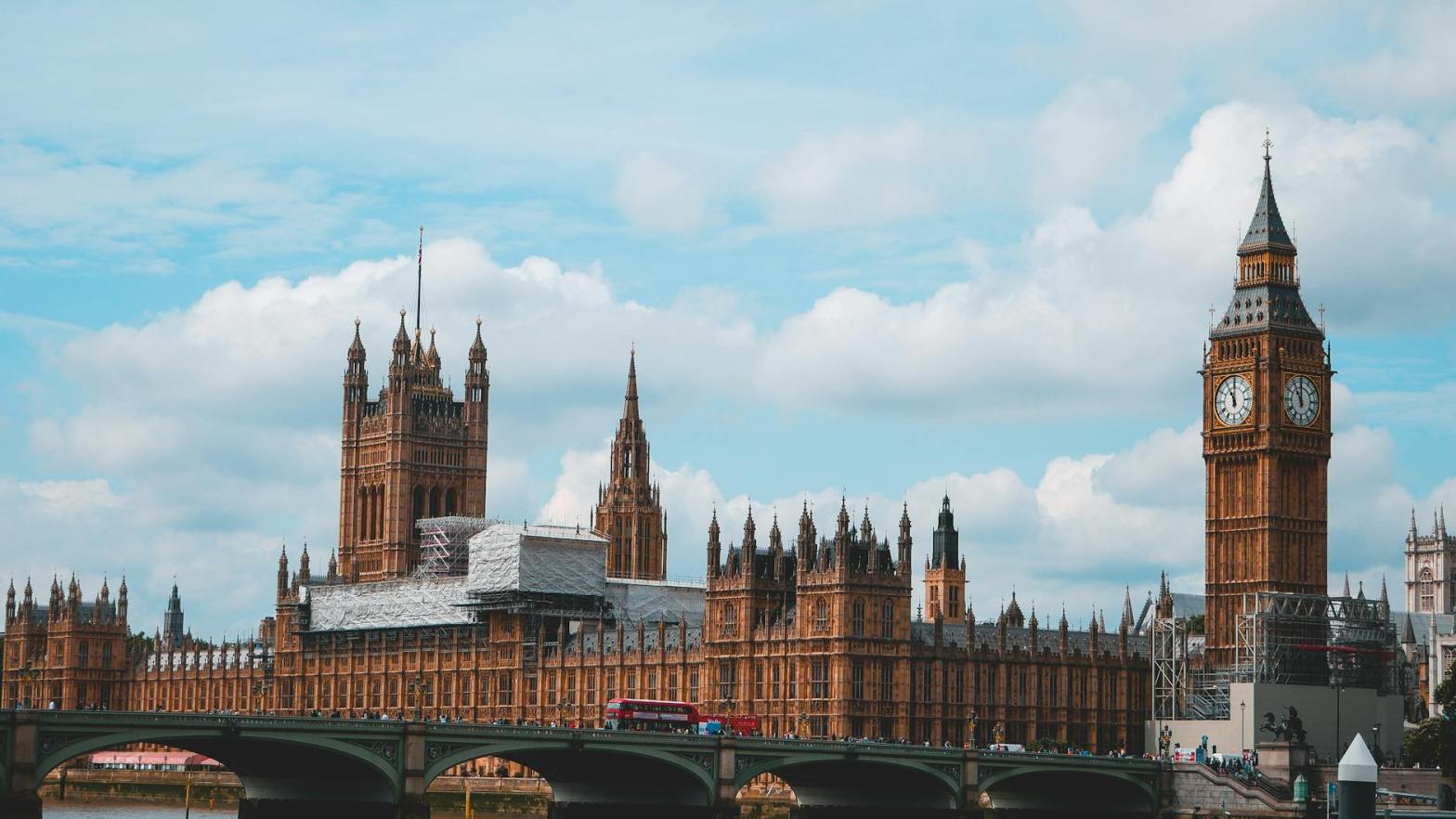If we thought we’d seen it all from this government in recent times (eg ever worsening performance from our PM; electioneering in plain sight involving alleged ‘doorstep’ exchanges and leaflets picturing King Charles; more examples of Tory corruption and gaslighting; continuing support for Israel despite genocide in Gaza; disgraced Blackpool South MP Scott Benton standing down so yet another byelection coming; the Rwanda Bill humiliation; more shocking news about NHS deficits and the continuing disaster of water privatisation, phew) the Conservatives have surely plummeted to a new low with the MP William Wragg revelations. As many have pointed out, it beggars belief that someone in his position would engage in this kind of security breaching activity, dragging others into it besides himself. In any other field of endeavour such an individual would have been sacked or at least firmly disciplined. Said one disgusted tweeter: ‘In the real world, sending pictures of your c*ck here there and everywhere would guarantee instant dismissal. However, this appalling government has rewritten the rules to suit their appalling behaviour. And the fecking nobs on #r4today want us to have sympathy’.
This is yet another reason why we need new and enforceable rules for parliamentary conduct. But as if this wasn’t enough, Jeremy Hunt (and others) stepped in to defend Wragg, portraying him as a victim and praising him for his courage in admitting to what happened and apologising. Ah, it’s all ok, then. Hunt has complacently tweeted another picture of himself and ‘supporters’ on the election trail: he might have donated enough to his local Conservative Association to be nominated but this and the other gaffe (about normalising a £100k salary) have revealed just how out of touch people like him are. ‘However, some MPs have privately expressed surprise that Mr Wragg has not lost the Conservative whip. At least one Tory MP has contacted the whips’ office to say he should be suspended from the parliamentary party’. Wragg himself has declined invitations to media interviews, clearly an area where his Hunt-cited ‘courage’ does not extend. Needless to say, this episode has drawn forth the usual timid response from the Speaker: ‘Commons Speaker Sir Lindsay Hoyle has written to MPs telling them it would be “unwise” to speculate, and promising to keep them “updated on developments”.
https://www.bbc.co.uk/news/uk-politics-68740332
Meanwhile, another PM interview reinforces how weak and in denial Sunak is, not only affecting his reputation here but abroad as well. ‘There were, however, a number of firsts: Sunak’s answers on immigration were an absolute mess but there was nothing new about that. Trying to square the circle of being both pro-migration and anti-migration, he re-routed the issue through the prism of fairness: illegal immigrants were jumping the queue, and that went against the prime minister’s inalienable sense of fairness’. He still refuses to be drawn on an election date ‘and his reason for stringing out his decision gets ever thinner. He’s focused on the things that matter, to ordinary people, who never ask him about the election, they only seem to ask him about the wonderful things he’s done to improve their lives’. This captures well the extent of Sunak’s denial and delusion, stressing as he does that the public ‘doesn’t want an election’ when most of us absolutely do.
But it gets worse: as we know the government has fudged the non-dom status measure and during this interview he tried an outrageous ploy to justify it: ‘It was the first time love has been proffered as a justification for non-dom status, and the attendant question marks hanging over Sunak’s wife, Akshata Murty, most of which are more of a statement: wow, that’s a lot of money. “I can’t control who I fall in love with, right?” Sunak said. In the great dating game of life, the heart wants what it wants. If it wants shares in Infosys, what’s a guy supposed to do?’ Right: so it’s not about tax avoidance and thereby holding the public in contempt, it’s about who our PM not having ‘control’ over who he ‘falls in love with’. Somehow we can’t see this argument cutting much ice but can imagine him congratulating himself afterwards on a good interview. And, weeks later, there’s still no update on whether the Tories will return the controversial Frank Hester £15m donation to the Conservative Party.
Following the targeting and killing of 7 aid workers in Gaza last week there have been robust calls to suspend arms sales to Israel. I find it sickening that this ‘conflict’ (as the media like to call it) has been going on for 6 months and the US and UK have colluded with the Netanyahu genocidal strategy, amid continuing impotent government handwringing about the numbers dying in Gaza. But now Boris Johnson, who the media still stupidly quote as if anything he says or does is relevant, has pronounced in his Daily Mail column that ‘it would be insane for Britain to ban arms sales to Israel. The sooner we denounce the idea, the better’. The typically hyperbolic opening paragraph reads: ‘If you want an example of the death wish of Western civilisation, I give you the current proposal from members of the British establishment that this country should ban arms sales to Israel. If you want evidence of government madness, it appears that Foreign Office lawyers are busily canvassing the idea — which has not, as far as I can tell, yet been rejected by the Foreign Secretary himself. He seems to have gone into a kind of purdah on the subject’.
(On the subject of Johnson, it’s an increasingly visible indication of Sunak’s weakness that he doesn’t reign in these disgraced former politicians including Liz Truss and now Suella Braverman, who try to conduct foreign policy off piste and who clearly haven’t quite understood that they’re no longer in their former roles. Unfortunately the media collude with these culprits by constantly quoting them).
Johnson won’t be the only one envious, jealous even or downright annoyed about ‘Lord’ Cameron being rescued by Sunak from his ‘bored shitless outside politics’ vacuum, but it seems tasteless to disrespect him in the way he does so publicly in this article. It seems that no sooner than 600 lawyers including Lady Hale had signed a letter calling for sales to be suspended, another tranche of lawyers stood up to say the UK was under no obligation to halt sales and that there was no evidence that Israel was breaching international law. But yet more government secrecy: the Labour Party has called for the government to publish its legal advice about whether Israel has broken international law in Gaza but there’s no sign of it so far. No surprise there and the government will do exactly as it likes regardless of any amount of lawyers’ professional antler clashing.
Now we hear the government has effected what it must imagine to be a compromise position, which feels a bit like a sop and which an Oxfam staffer, speaking on Radio 5 Live last night, clearly disapproved of as being inadequate to the situation. ‘With the UK and US governments under intense pressure to halt arms sales to Israel, Downing Street said on Saturday that ministers would instead boost support for a planned new maritime corridor from Cyprus to Gaza, to channel “life-saving aid” by sea to a population in urgent need of basic food supplies’. It’s surely suspicious that the government still refuses to publish the legal advice on this situation, especially when it’s in the public domain. ‘Last week, the Observer reported Alicia Kearns, the Tory MP and chair of the foreign affairs select committee, as saying that the Foreign Office’s own lawyers had concluded that Israel was in breach of international law and that the UK as a result had to halt arms sales. This was not denied by the Foreign Office’.
It really doesn’t help that in the Sunday Times today ‘Lord’ Cameron has apparently repeated the narrative that ‘Hamas started this on 7 October’ and that paper tiger Sunak has once again agonised about the situation, using an expression we thought had been dumped after the pandemic. (Remember the government allegedly ‘bending over backwards’, ‘working night and day’ and ‘straining every sinew’ to get this or that done? To mark six months since the Hamas attacks, Rishi Sunak toughened his line on Israel, saying that while the UK stood by the state’s right to defend itself, “the whole of the UK is shocked by the bloodshed and appalled by the killing of brave British heroes who were bringing food to those in need….This terrible conflict must end. The hostages must be released. The aid – which we have been straining every sinew to deliver by land, air and sea – must be flooded in’.
Jonathan Freedland explores how things have changed over the six months since 7 October, suggesting that this war is making Israel a pariah state. He reminds us how there was immediate sympathy for Israel at that time, which has plummeted in recent times. ‘Israel has never been more isolated… Those governments (which have already withdrawn arms sales) are responding to a global mood they can no longer ignore. Because it’s not Israel’s perennial critics who are denouncing the country; it’s Israel’s friends…. Even those allies who, like Biden, accepted that Israel’s war on Hamas would come at an unbearably heavy price could see no logic or justification in a pattern of restrictions and obstacles that inflicts suffering not on Hamas, but on ordinary Palestinians… After Biden’s demarche, Netanyahu promised to change and to open new aid crossings into Gaza – though there was a promise of a “flood” of aid from Israel last month, and it never came. The result is that Israel, whose founders longed to be a light unto the nations, stands today as a leper among the nations’.
Crucially, he points out that Israeli media don’t show the war the rest of us see and deplore and that they’re also more focused on the plight of the hostages and the threats from Iran and from Hezbollah on their northern border. ‘There are no winners in this dreadful war. But Hamas can enjoy a wicked smile of satisfaction: it laid a deadly trap – and Benjamin Netanyahu led Israel right into it’. After the stern admonishment from the US, that took far long, I suspect Netanyahu will do just enough to keep the US on side, but no more.
Closer to home, we’ve seen, in addition to the Wragg new low, the spectacle of Thames Water not only polluting our waters but also going into unsustainable debt, which again serves to exemplify the foolishness of privatising such an essential resource. At least one commentator says ‘If Thames Water collapses in the weeks ahead, there is only one smart, long-term response: public ownership’. It’s Britain’s biggest water supplier, with 16m customers and although they’ll still get their water, it could be at quite some cost because shareholders, who haven’t minded benefiting from dividends for years, have said they’re not prepared to provide the £500m of emergency funding required. Yet again it’s likely to be customers picking up the tab, an outrageous situation when you think the false rationale for privatising back in 1989 was to raise the funds for much-needed infrastructure work. So this means we could be paying twice over and what happens at Thames might well be replicated across the sector. And don’t even think we can rely on Ofwat for anything: in this country we now have numerous ‘regulators’ which don’t actually regulate, Ofcom and Ofgem perhaps being the worst examples.
‘In Margaret Thatcher’s imagination, selling off this public asset was meant to bring about shareholder democracy, but it has instead resulted in a major wealth transfer to Thames Water’s nine shareholders – institutional investors that are mostly based overseas in places such as Abu Dhabi, Beijing and Brisbane. The result is a company buckling under the weight of unserviceable debt, which over the years had not had sufficient investment, and had value extracted in the form of dividends’. The writer makes the interesting and ironic point that the largest shareholder is a Canadian public pension fund from which his grandmother receives a pension, so he is, in a sense, paying his grandma’s pension. He describes the ‘morbid effects of institutional investor ownership’, found in other areas like care homes, surely a risky business model because investors take profits but also load the organisation with debt. ‘Water systems, care homes and chain stores are all transformed into assets to be squeezed of their value’. What will happen now? I can’t see the government coming up with any radical solution so after a temporary impasse we’re likely to see ever increasing bills and more pollution while investors continue to cash in.
The beleaguered NHS is never far from the front pages and, while it’s good news that the consultants have now come to a deal with the government following its long pay dispute, the junior doctors’ dispute doesn’t look like ending any time soon despite the sanctimonious media appearances of our bird’s nest haired Health Secretary dropping hints of it. ‘The (consultants’) pay deal includes changes to the review body on doctors’ and dentists’ remuneration (DDRB) and a 2.85% (£3,000) uplift for those who have been senior doctors for four to seven years, said the BMA. The offer is in addition to the 6% awarded during the DDRB process last summer’. The news comes at the end of a week which has seen more alarming and shocking statistics than we’ve seen before: up to 250 people are dying a week because of the long waits in A&E departments and the number of patients waiting for treatment is actually closer to 10m (rather than the 8m often quoted, which is bad enough) because of yet more cynical sophistry around how statistics are arrived at. The lower number was apparently for those waiting for treatment to start and the higher figure is for those awaiting treatment at any stage of their NHS journey.
But something not new but which seems new to the media: not only the high numbers of people awaiting mental health treatment but a focus on ADHD (Attention Deficit Hyperactivity Disorder) and autism, the diagnoses for which are very hard to obtain on the NHS. As these are increasingly common conditions this is another example of how under-resourcing is massively letting people down and preventing many from leading a more fulfilling life. A private mental health assessment can cost hundreds of pounds, which many simply can’t afford. A psychiatrist who himself has both conditions has found that, contrary to traditional views, both conditions can co-exist in the same individual. ‘One study by researchers at Duke University found that up to half of people diagnosed as autistic also exhibit ADHD symptoms, and that characteristics of autism are present in two-thirds of people with ADHD’. It’s now spawned a new label: AuDHD, allegedly affecting ‘a groundswell of people who say they recognise its oxymoronic nature, perpetual internal war and rollercoaster of needs’.
Neurodiversity umbrella organisation Embracing Complexity tells us that ‘both are lifelong neurodevelopmental conditions that affect how people think, perceive the world and interact with others. Both are legally recognised as disabilities, and neither are mental illnesses to be ‘cure’, although the knock-on effects can lead to mental illness’. It does indeed sound contradictory. Queries one patient: ‘How can you be extremely rigid and need routines and structure, but also be completely incapable of maintaining a routine and structure?’ Those experiencing it are aware of being pulled into apparently contrasting mindsets: silence v noise; structure v chaos; repetition v novelty; caution v risk-taking …”. These conditions matter not only for quality of life but also because a correlation between them and dying by suicide has emerged from research which analysed coroners’ records. What seems a major barrier to people getting the help they need (besides NHS under-resourcing, of course) is that medicine, policy and charities operate in separate silos for each condition and need to make the necessary adjustments to enable an overview of those affected.
If we didn’t already know it, recent events in the Royal Family have shown just how poor the Palace PR machine is and declining support for the monarchy means that this support cannot be taken for granted. Unfortunately, though, this is exactly what the royals appear to be doing, for example trying to have it both ways regarding disgraced Prince Andrew. Despite still trying to evict him from his home, Royal Lodge on the Windsor estate, they allowed him to take centre stage on Easter morning due to the absence of key family members. But customs need challenging in these circumstances: why on earth did Andrew have to ‘lead’ them into church? It’s as the royals are oblivious to the kind of message this sends out. Republic said: ‘Prince Andrew’s attendance at the royal Easter service has been branded a disgrace by campaigners. As many suspected, Andrew’s withdrawal from many aspects of public life is about PR, not standards or accountability’. I suspect most people, whether monarchist or republican or in between, are not happy about this attempt to rehabilitate him.
But he’s a stain that won’t go away despite the best efforts of the royals and their numerous hangers on, not helped by the broadcast of the Netflix film Scoop, about That Interview. A BBC royal correspondent put it rather well: ‘This was the Rolls-Royce of car crash interviews. A purring engine of privilege collided with a barrage of perfectly timed questions. It used to be said that history is written by the winners. Now it’s the Netflix script… He comes across as needy, lacking in self-awareness, and emotionally dependent on his mother, the late Queen, and his private secretary, Amanda Thirsk…Scoop is intended as a celebration of holding power to account’. Neither the royals nor their PR will be pleased to see the Prince Andrew hashtag trending on Twitter this weekend.
https://www.bbc.co.uk/news/uk-68739026
Finally, an amusing article is scathing about Rishi Sunak’s much-criticised sartorial gaffes, focusing on a trendy shoe (I’d never heard of them) which is predicted to now take a nosedive in popularity because the Prime Minister has taken to sporting them. Headlined ‘Adidas Sambas were this year’s coolest shoes – until Rishi Sunak got a pair’, the article describes Sunak appearing in them for his interview on tax policies: ‘Listen carefully and you could hear the death knell tolling for the trainer du jour… The ubiquitous gum-soled, trio-striped trainers are beloved by everyone from rappers to supermodels. They’ve been hailed as “this year’s It-footwear”, “the official shoe of the season… but no more. Nothing kills off a sartorial item’s perceived cool like a widely reviled politician being snapped sporting it’. Never mind Prince Andrew: the PM’s ploy is another PR stunt gone wrong. ‘It didn’t help that Sunak’s Sambas were pristine and box-fresh. They looked squeaky, stiff and unconvincing, rather like the man himself – rubbing against the nation’s heel, leaving us red and sore’. What I don’t understand is why Sunak hasn’t addressed the half-mast trouser issue since cartoonists have had a field day with this for so long. It looks like the shoes are another blind spot. If the PM is determined to hang on till November we’re entitled to wonder what further gaffes he will commit in his attempts to ‘get down with the kids’ (or the ‘common people’).









